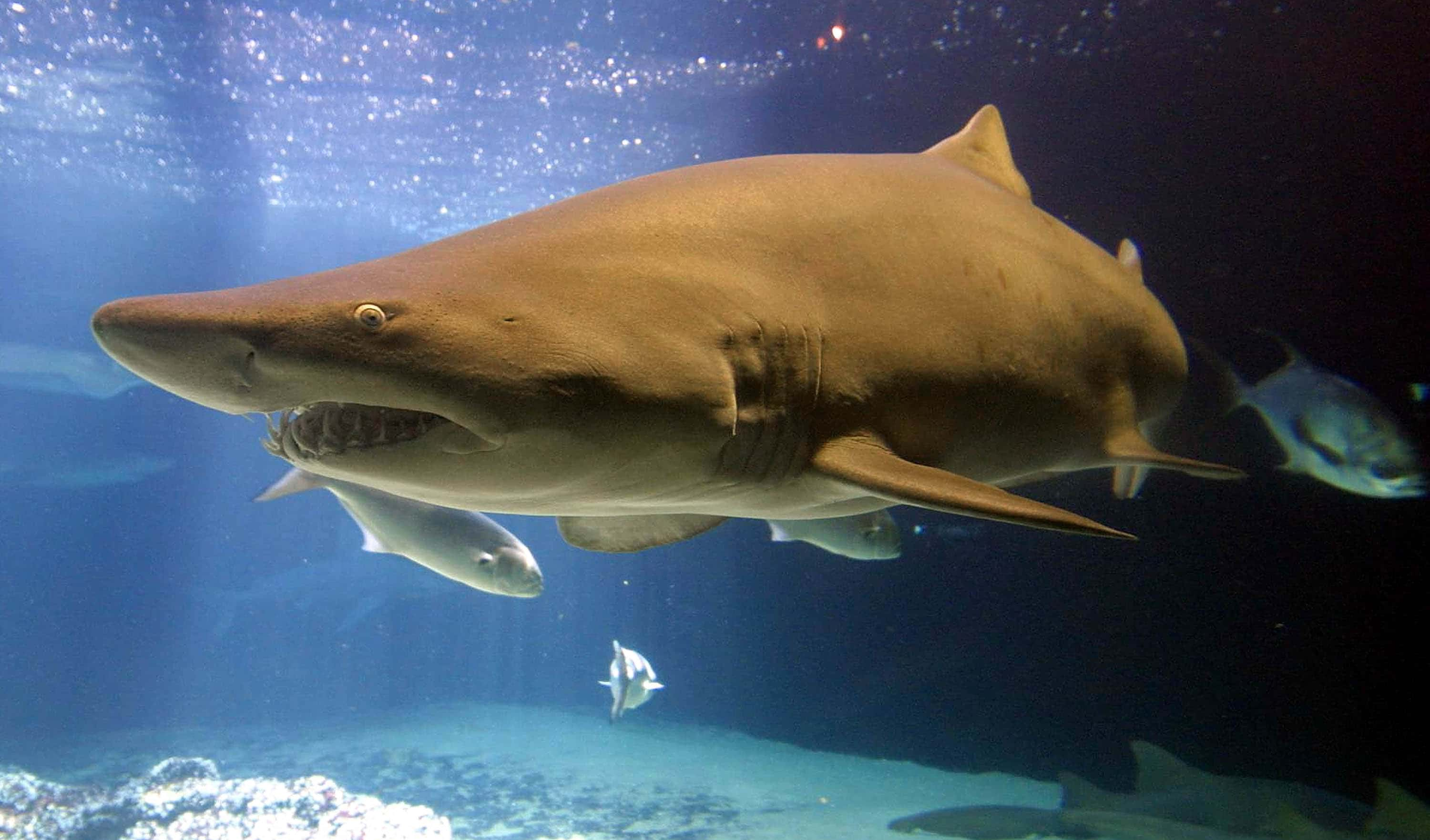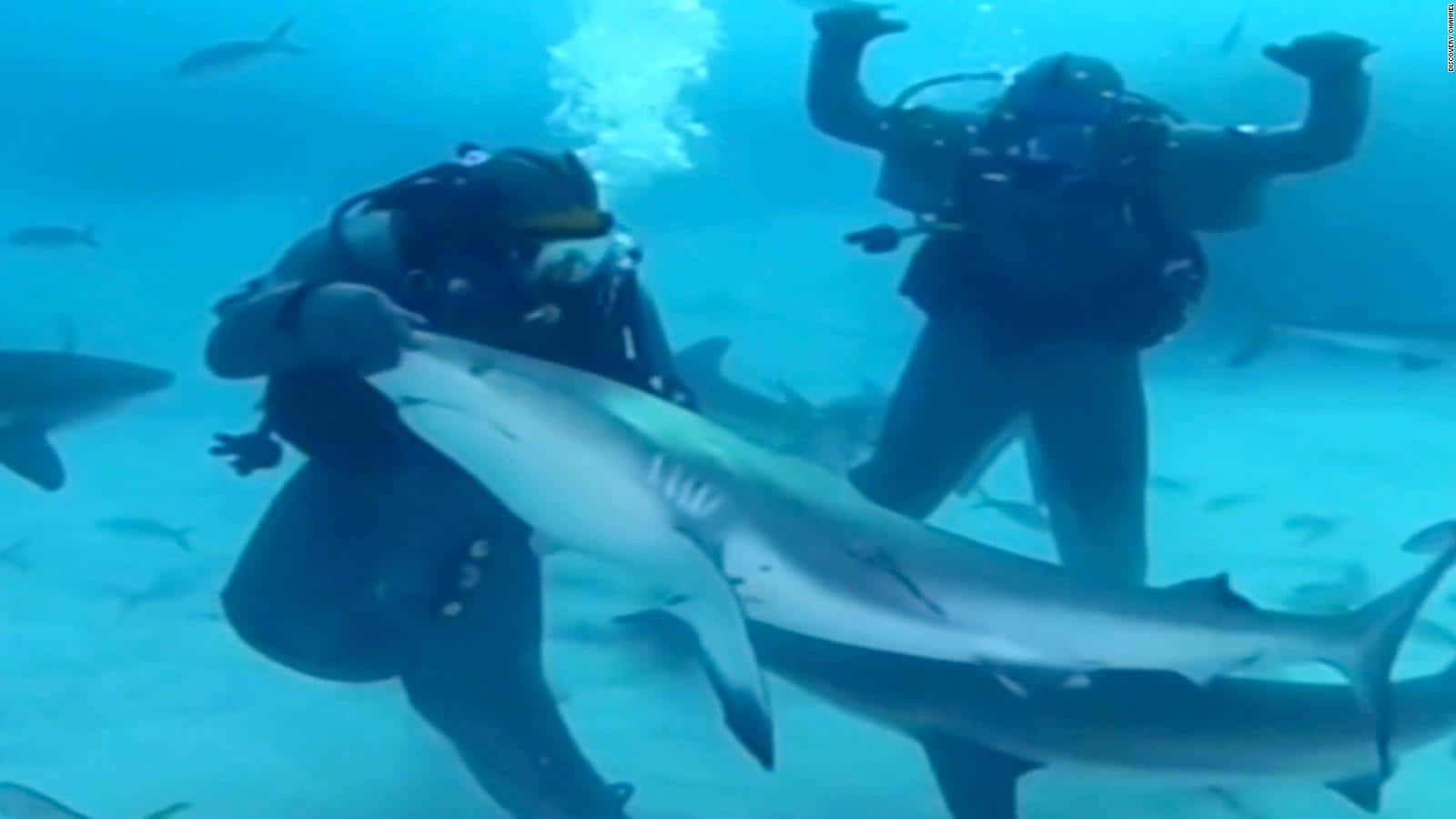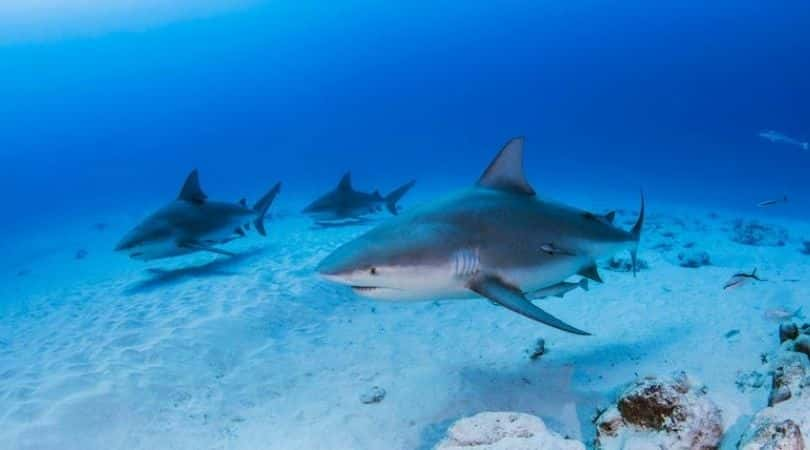EXCLUSIVE | Researcher David Shiffman reveals what's wrong with Shark Week and why Tyson special is a 'new low'

Shark Week has often been referred to as Discovery Channel's "Superbowl." First started in 1988 and now in its 32nd edition, Shark Week is for Discovery as Christmas is to Hallmark and brings in millions of viewers and added revenue. According to the Standard Media Index, the event raked in $22.3 million in advertising revenue last year, up from $18.2 million in 2018. Though Shark Week is touted as animal activism, scientists are skeptical. Criticism against Discovery's "fear-mongering" style of programming for shark specials have been mounting each year and the network has yet to shake it off.
MEA WorldWide (MEAWW) spoke to Dr David Shiffman, a marine conservation biologist and post-doctoral researcher at Arizona State University. Shiffman has been previously featured in The Washington Post and Vox regarding his opinions on Shark Week.He annually watches the shark specials and tweets his commentary on them. Shiffman is largely skeptical of the Shark Week specials, which often rely on hyperbole to attract viewers. He told MEAWW that Shark Week has "a bit of a mixed bag in terms of reputation among scientists." He continues that Shark Week is "absolutely not what Discovery says they want [it] to be about."
Research has shown that Shark Week viewers who were subjected to more violent shark footage reported significantly increased fear of sharks and a greater perceived threat from sharks. This sensationalization of sharks goes beyond Shark Week: a 2013 study found that 59 percent of shark-related news articles in Australia and the US focused on negatives associated with sharks. More than half of the 300 articles examined in this study focused on bite incidents, while only 11 percent broached conservation issues. Shiffman agrees and told us, "There have been academic studies that show that nonsense like that appearing on Shark Week negatively affect people's perception of sharks and makes them less likely to support shark conservation and less informed about science." However, Shiffman says that Discovery continues to use the "biggest platform in the world for marine biology" to "promote charlatans and snake-oil salesmen [as] experts." However, "if they lifted even one tiny little finger, even trying to do the right thing with this, it could have a massive impact in terms of public understanding of the ocean and [raise] public support for conservation."

Another issue Shiffman notes with Shark Week specials is the lack of diversity among the shark experts hired by the Discovery Channel. According to Shiffman's The Washington Post article, nearly half of shark researchers are women, according to data from the American Elasmobranch Society. Shiffman says that while Shark Week specials feature real science in about quarter of the episodes and real scientists, "they are overwhelmingly white men."
Among this year's Shark Week programming, Shiffman found the special featuring boxer Mike Tyson to be especially problematic. 'Tyson vs Jaws: Rumble on the Reef' was promoted as Tyson taking on a great white shark, where Tyson would attempt to "score a TKO" over the shark. Shiffman tells us that while telemetry tags "is basically the only scientific method you will ever see on Shark Week," Tyson's action of grabbing a shark and flipping it over to tag it was nonsense. He says that such behavior would not be permitted by animal research ethics, adding, "There's no way an actual scientist would be able to do that, and they shouldn't."
Shiffman tells us that programming like those featuring Tyson "promotes weird public attitudes towards sharks." He tells us that the marketing for the program promotes outrage as much as it promotes curiosity -- "He was not ever going to actually fight a shark." Shiffman also notes that Tyson is a "wifebeater and convicted rapist" -- the boxer was convicted of rape in 1992 -- and is "not the face of family-friendly educational television," and added that the special was in the running to be a new low for Shark Week specials.

Shark Week specials featuring celebrities have been a staple of Discovery Channel's lineup. For instance, another special this year -- 'Will Smith: Off the Deep End' -- featured the 'Men in Black' actor overcome his fear of sharks. Shiffman said that while he liked that special, sharks were a minor player in the story and offered very little in terms of raising shark awareness. During Shark Week 2017, Discovery promoted Michael Phelps's special, 'Phelps vs Shark: Great Gold vs Great White', by asking whether Phelps could swim faster than a shark. Shiffman jokes that marine biologists "collectively rolled our eyes because, no, we don't need a special [to know] that."
So, does Shark Week help in improving shark conservation efforts as Discovery claims it does? Shiffman argues that it may not be possible for Shark Week to become what it claims to be because there is a lot of gap between that and what Shark Week actually is. Shiffman wrote in his 2018 Washington Post article, "Shark conservation organizations say those measures have helped but only to a degree." He added that in 'Sharkadelic Summer' -- featuring commentary from Snoop Dogg --, three specific ocean conservation policies were named and this was "the most conservation [he] has seen on Shark Week in years."
When we asked Shiffman on what steps the Shark Week organizers needed to take to make the programming actually become what they claim to be, Shiffman tells us that the specials need to feature more diversity -- not just in scientists, but also the shark species featured. He says, "There are over 550 species of sharks -- 97 percent of them had never appeared on a Shark Week show. There are a lot of scientists who could be featured as experts." He also says that Shark Week needs to "stop with the fear-mongering crap" and that the network needs to consult with actual experts.

Shiffman also cautions that sharks are not a threat to the average person and that there are more people killed in a typical year by "flowerpots falling on their heads from above." In fact, more people are killed in automobile accidents than by sharks. He also tells us that while shark finning is mentioned often on Shark Week specials, it is not the biggest or only threat to sharks and has not been in 30 years. Shiffman says, "Raising awareness of wrong information does not help anyone or anything." He continues, "I want people to know that science is a real thing and it is not jumping in a plastic box on your back while a shark swims under you. Science isn't only done by white men like that."
Shiffman also notes that while in most shots of Shark Week the sharks are seen swimming near boats because "they put bait in the water to make the sharks come to the boat." He tells us that sharks swim peacefully by people all the time and don't bother them, adding, "The version of shark behavior you see on television is unrecognizable if you know things about actual reality."
Fans of Shark Week who are passionate about learning more about sharks and their conservation can reach out to Discovery to make a change in this, after all, "the customer is always right." While Discovery Channel often focuses on sensational programming, if more interest in actual shark science is registered, it might be likely that the network will listen. After all, Discovery has not repeated its 2013 fiasco, when as part of Shark Week they aired the mockumentary 'Megalodon: The Monster Shark Lives' which claimed that a giant shark that has been extinct for millions of years is still swimming in the planet's oceans and is responsible for deaths. The mockumentary hired actors and used CGI to make it seem like the megalodons still existed and that there was a conspiracy to hide their existence. Only vague disclaimers alluded to the mockumentary being fiction, which meant that it was likely considered to be real by most viewers.










